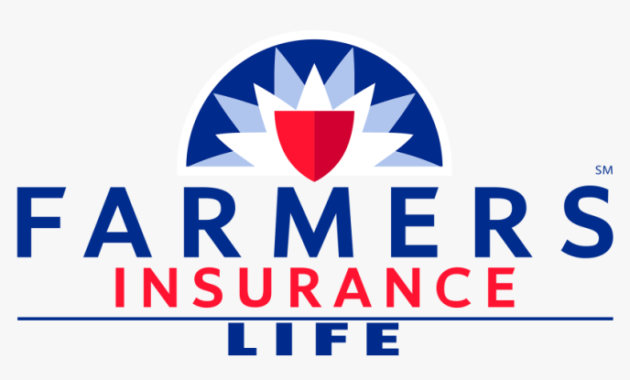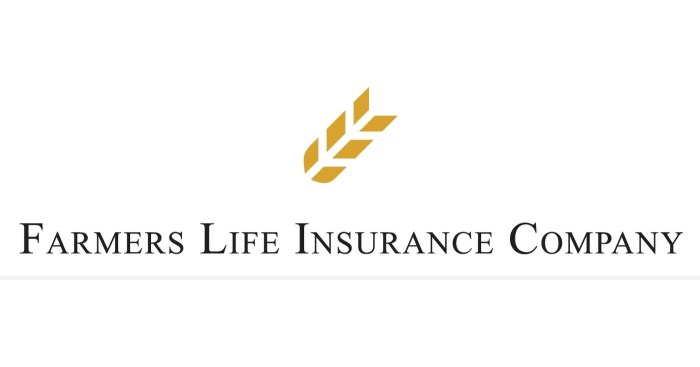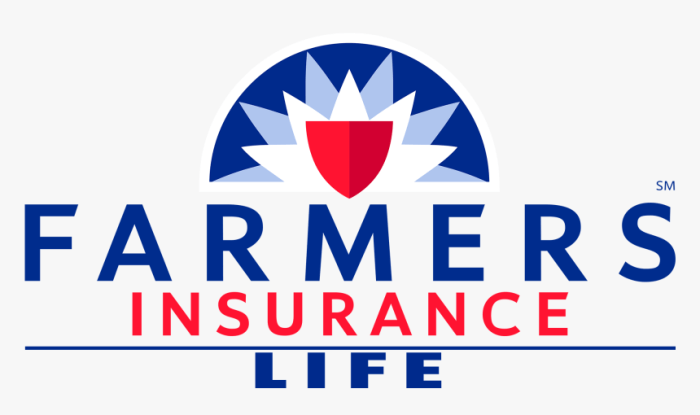
Farming, a cornerstone of our global food system, demands resilience, hard work, and shrewd planning. Beyond the daily toil of cultivating the land, lies the crucial responsibility of securing the future for oneself and one’s family. This guide delves into the world of farmers life insurance, exploring the various policy types, factors influencing premiums, and strategies for ensuring adequate coverage. We’ll examine how the right insurance can safeguard a farmer’s legacy, protect against unforeseen events, and facilitate a smooth transition of the farm to future generations.
Understanding farmers life insurance is not merely about financial protection; it’s about securing the legacy of generations of farming expertise and ensuring the continued prosperity of rural communities. This comprehensive guide will equip you with the knowledge necessary to make informed decisions, navigate the complexities of insurance options, and ultimately, build a secure future for yourself and your loved ones.
Types of Farmers Life Insurance

Choosing the right life insurance policy is a crucial financial decision for farmers, considering the unique risks and responsibilities associated with the agricultural lifestyle. The right policy can protect your family’s financial future and ensure the continuation of your farm operation in the event of your passing. Several types of life insurance policies offer varying levels of coverage and cost, each with its own set of advantages and disadvantages. Understanding these differences is key to making an informed choice.
Term Life Insurance
Term life insurance provides coverage for a specific period, or “term,” such as 10, 20, or 30 years. If you die within the term, your beneficiaries receive the death benefit. If you outlive the term, the coverage expires. For farmers, term life insurance can be an effective and affordable way to ensure financial security for their family during their working years, particularly if they have significant debt or young children. The premiums are generally lower than other types of life insurance, making it a cost-effective option for those on a budget. However, the coverage ends at the end of the term, leaving you without protection afterward unless you renew or purchase a new policy.
Whole Life Insurance
Whole life insurance provides lifelong coverage, meaning your beneficiaries will receive the death benefit whenever you pass away. It also builds cash value that grows tax-deferred over time. This cash value can be borrowed against or withdrawn, providing a financial safety net for unexpected expenses related to the farm, such as equipment repairs or unexpected crop failures. For farmers, the long-term coverage and cash value accumulation can be particularly beneficial, offering financial stability and security for generations to come. However, whole life insurance premiums are generally higher than term life insurance premiums.
Universal Life Insurance
Universal life insurance is a type of permanent life insurance that offers flexible premiums and death benefits. You can adjust your premium payments within certain limits, and the death benefit can also be adjusted over time. This flexibility can be advantageous for farmers whose income fluctuates with crop yields and market prices. The cash value component grows tax-deferred, offering a potential source of funds for farm-related expenses. However, the flexibility also means that the policy’s performance can be affected by market fluctuations, and if premiums are not paid consistently, the policy may lapse.
Variable Life Insurance
Variable life insurance is another type of permanent life insurance, but it invests the cash value component in a selection of sub-accounts, similar to mutual funds. This allows for the potential for higher returns than other types of permanent life insurance, but it also carries a higher degree of risk. For farmers willing to accept the risk, the potential for higher returns could be beneficial for long-term financial planning and estate building. However, the investment component is subject to market fluctuations, meaning the cash value could decrease.
| Policy Type | Coverage | Premiums | Cash Value |
|---|---|---|---|
| Term Life | Specific term (e.g., 10, 20, 30 years) | Generally low | None |
| Whole Life | Lifelong | Generally high | Yes, grows tax-deferred |
| Universal Life | Lifelong, flexible death benefit | Flexible | Yes, grows tax-deferred |
| Variable Life | Lifelong | Variable | Yes, invested in sub-accounts |
Finding the Right Policy

Selecting the right life insurance policy is crucial for farmers, given the unique risks and financial complexities of their profession. A well-chosen policy provides financial security for the family and ensures the farm’s continued operation in the event of the farmer’s death. This process requires careful consideration of various factors and a thorough understanding of available options.
Finding the appropriate life insurance policy involves a systematic approach. This process begins with a clear assessment of your individual needs and progresses through comparing quotes and communicating effectively with insurance agents. The goal is to secure a policy that offers adequate coverage at a reasonable cost, aligning with your specific circumstances.
Assessing Your Insurance Needs
Determining your insurance needs starts with calculating your farm’s value, including land, equipment, livestock, and outstanding debts. Consider the potential financial burden your family would face if you were no longer able to operate the farm. This calculation should factor in potential income loss, outstanding loans, property taxes, and the cost of maintaining the farm operation. A financial advisor can assist in this comprehensive assessment, providing a realistic estimate of your family’s future financial needs. For example, a farmer with a $1 million farm and significant debt might require a $1.5 million life insurance policy to cover both the farm’s value and outstanding obligations, ensuring a smooth transition for their family.
Comparing Insurance Quotes
Once you’ve determined your coverage needs, it’s time to obtain quotes from multiple insurance providers. This comparative analysis is crucial to secure the best possible value. Start by requesting quotes from at least three different insurers. Ensure you provide each insurer with consistent information about your age, health, the desired coverage amount, and the type of policy you’re seeking (term life, whole life, etc.). Compare the quotes based on premiums, coverage amounts, policy features, and the insurer’s financial stability ratings. Consider using an online comparison tool to streamline this process. For example, comparing quotes from Nationwide, State Farm, and a local mutual insurance company can reveal significant differences in premiums and policy benefits.
Communicating with Insurance Agents
Effective communication with insurance agents is essential to finding the right policy. Clearly articulate your needs and concerns, providing detailed information about your farm operation and financial situation. Ask clarifying questions about policy terms, exclusions, and potential future adjustments. Don’t hesitate to seek second opinions or clarify any aspects of the policy that you don’t fully understand. For instance, if you are unsure about the implications of a specific clause or rider, seek clarification from the agent and potentially consult with an independent financial advisor. A strong working relationship with your agent will ensure you select a policy that aligns perfectly with your long-term goals.
Illustrative Examples of Farmers’ Insurance Needs
Choosing the right life insurance policy is crucial for farmers, as it protects their families and businesses from financial hardship in the event of their death. The ideal policy depends heavily on individual circumstances, including farm size, income, debt, and family structure. The following case studies illustrate how different farmers might approach life insurance planning.
Case Study 1: The Small-Scale Dairy Farmer
This example focuses on Sarah Miller, a single mother operating a small-scale dairy farm with 20 cows. Her annual income is approximately $60,000, and she has a significant mortgage on her property and equipment. Her two children are still in school. Sarah’s primary concern is ensuring her children’s education and the continued operation of the farm.
| Farmer | Farm Size/Type | Financial Situation | Recommended Policy | Reasoning |
|---|---|---|---|---|
| Sarah Miller | Small-scale dairy farm (20 cows) | Moderate income, significant debt | Term Life Insurance with a potential whole life component for future needs. | Term life insurance provides affordable coverage for a specific period (e.g., until her children are financially independent), addressing the immediate need to cover debt and provide for her children’s education. A smaller whole life component could provide a long-term savings element and potentially build cash value for future needs. |
Case Study 2: The Large-Scale Grain Farmer
John and Mary Smith operate a large-scale grain farm, encompassing 1,500 acres. They have a high annual income, exceeding $250,000, and have already paid off their mortgage. They have two adult children who are financially independent. Their main concern is protecting their estate and ensuring a smooth transition of the farm to the next generation.
| Farmer | Farm Size/Type | Financial Situation | Recommended Policy | Reasoning |
|---|---|---|---|---|
| John & Mary Smith | Large-scale grain farm (1500 acres) | High income, minimal debt | Permanent Life Insurance (Whole Life or Universal Life) with estate planning considerations. | A permanent life insurance policy provides lifelong coverage, building cash value that can be accessed for estate taxes or business succession planning. This ensures a smooth transfer of the farm to their heirs, minimizing potential tax liabilities and estate conflicts. |
Case Study 3: The Young, Expanding Orchard Owner
David Lee is a young farmer starting an orchard with 500 fruit trees. His current income is modest, around $40,000 annually, and he has significant debt from establishing his orchard. He is single and his primary concern is protecting his investment and ensuring he can continue his business operations.
| Farmer | Farm Size/Type | Financial Situation | Recommended Policy | Reasoning |
|---|---|---|---|---|
| David Lee | Expanding orchard (500 trees) | Modest income, significant debt | Term Life Insurance with a focus on covering business debts. | Given his current financial situation, term life insurance provides affordable coverage to protect his business from debt in the event of his death. As his income grows, he can consider upgrading to a more permanent policy. |
Estate Planning and Life Insurance
Farming is a complex business, often involving significant assets and intricate family dynamics. Effective estate planning is crucial to ensure the farm’s continued prosperity and the financial security of the farming family. Life insurance plays a vital role in this process, providing a crucial financial safety net and facilitating a smooth transition of ownership.
Life insurance can be a powerful tool in minimizing the impact of estate taxes on a farmer’s legacy. The substantial value of land, equipment, and livestock can trigger significant estate tax liabilities, potentially forcing heirs to sell off assets to meet these obligations. A well-structured life insurance policy can provide the necessary liquidity to cover these taxes, allowing the farm to remain intact and continue operating. This ensures that the family business remains in the family, preserving years of hard work and investment.
Life Insurance and Estate Tax Mitigation
Proceeds from a life insurance policy are generally exempt from estate taxes, provided the policy is structured correctly. This means that the death benefit can be used to pay estate taxes without reducing the overall value of the estate available to heirs. For example, a farmer with a large estate might purchase a life insurance policy with a death benefit equal to the estimated estate tax liability. Upon their death, the death benefit would be used to pay the taxes, preventing the forced sale of farm assets. This strategy helps maintain the farm’s operational continuity and ensures a smoother transition for the next generation.
Providing for Family Members and Maintaining Farm Operations
Life insurance can provide financial security for family members after the death of the farmer. This is especially important in situations where the farm is the primary source of income. The death benefit can be used to provide for surviving spouses and children, covering living expenses, educational costs, and other financial obligations. Furthermore, it can provide the necessary capital for the farm’s continued operation, ensuring that it doesn’t fall into disrepair or face financial distress. For instance, a policy could fund the purchase of necessary equipment or provide working capital to cover operating expenses until the heirs are able to stabilize the farm’s finances.
Strategies for Utilizing Life Insurance in Estate Planning
Several strategies can be employed to maximize the benefits of life insurance in estate planning. One common approach is to establish an Irrevocable Life Insurance Trust (ILIT). This trust holds the life insurance policy, keeping the death benefit out of the estate and avoiding estate taxes. Another strategy involves using life insurance to fund buy-sell agreements between farming partners. This ensures a fair and orderly transfer of ownership if one partner dies, preventing disputes among family members. A properly structured policy can also provide for the payment of debts and other financial obligations, ensuring that the farm is not burdened with unnecessary liabilities after the death of the farmer. These strategies require careful planning and legal advice to ensure they are implemented effectively.
Common Misconceptions about Farmers Life Insurance
Farmers, like any business owner, need comprehensive life insurance, but several misconceptions surround the specific needs of this profession. Understanding these misconceptions is crucial for securing adequate coverage and protecting your family’s future. This section clarifies three prevalent misunderstandings regarding farmers’ life insurance.
Farmers Don’t Need as Much Life Insurance as Other Professionals
It’s a common misconception that farmers don’t require substantial life insurance because their assets are primarily tied up in land and equipment, not easily liquidated. However, this overlooks the significant value of a farm’s ongoing operations and the potential financial strain on surviving family members if the farmer passes away unexpectedly. The loss of income from crops, livestock, or other farm activities can be substantial, and debts associated with land, equipment, and operating expenses must still be settled. A farmer’s life insurance policy should account for these ongoing operational costs and ensure a smooth transition of the farm to heirs, preventing forced liquidation or disruption of the business. The value of a farmer’s life to the business operation, often underestimated, should be a key factor in determining coverage needs.
Farm Land and Equipment are Sufficient Collateral
While farm land and equipment may serve as collateral for loans, relying solely on these assets to protect the family in case of the farmer’s death is risky. Liquidating these assets can be a lengthy and complicated process, potentially resulting in a significant loss of value due to forced sales. Moreover, the sale may not generate enough funds to cover all outstanding debts and provide for the family’s long-term financial security. A comprehensive life insurance policy provides immediate liquidity, allowing for a smoother transition and preventing the family from facing immediate financial hardship while dealing with the emotional burden of loss.
Life Insurance is Too Expensive for Farmers
The perception that life insurance is unaffordable for farmers often stems from a lack of understanding of available policy options. While some policies can be expensive, there are various types of life insurance, including term life, whole life, and universal life, each with different premiums and benefits. A financial advisor specializing in agricultural insurance can help farmers find a policy that fits their budget and risk tolerance. Furthermore, tax advantages and potential business deductions associated with life insurance policies can make the cost more manageable than initially perceived. Exploring different options and seeking professional advice is crucial in determining the most cost-effective and suitable coverage.
Closure

Choosing the right farmers life insurance policy is a critical step in securing your family’s financial well-being and the future of your farm. By carefully considering your individual circumstances, exploring the various policy options, and engaging in open communication with insurance providers, you can find a plan that aligns with your specific needs and goals. Remember, this is not just about financial protection; it’s about safeguarding your legacy and ensuring the continued success of your farming operation for years to come. Proactive planning and informed decision-making are key to building a resilient and secure future.
Essential FAQs
What is the difference between term and whole life insurance for farmers?
Term life insurance provides coverage for a specific period, offering a lower premium but no cash value. Whole life insurance provides lifelong coverage with a cash value component that grows over time, offering higher premiums.
How does my farm’s size affect my insurance premiums?
Larger farms, often involving greater risks and higher liability, generally result in higher premiums. Insurers assess the level of risk associated with the farm’s operations.
Can I get life insurance if I have a pre-existing health condition?
Yes, but pre-existing conditions may affect your eligibility and premium rates. Disclosing all health information accurately is crucial for obtaining appropriate coverage.
What is the role of an insurance agent in choosing a policy?
An insurance agent acts as a guide, helping you understand different policy options, compare quotes, and choose a plan that best suits your needs and budget. They can also assist with the application process.